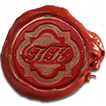Recently (May 22ⁿᵈ, in fact), I wrote about my way of learning… how difficult I find it to just memorize something… how I actually have to learn it and understand it. And the flipside of that… how if I actually manage to memorize anything, it sticks with me forever…. I suppose because of the way I learned it; to some extent, I understand it… it’s not just a jumble of words.
Such is the case with my favourite poem of all time, one I learned over 35 years ago. A classic and a favourite, written about by countless students over the years. I learned it back then, I and I still know it… and next time we’re having a coffee or a beer or whatever, call me on it… I’ll be happy to recite it for you. And if you want a far better version, check out Bryan Cranston’s reading of it on YouTube. It’s incredible.
“Ozymandias” – by Percy Shelley
I met a traveller from an antique land
Who said: Two vast and trunkless legs of stone
Stand in the desert… near them, on the sand,
Half sunk, a shattered visage lies, whose frown,
And wrinkled lip, and sneer of cold command,
Tell that its sculptor well those passions read
Which yet survive, stamped on these lifeless things,
The hand that mocked them and the heart that fed;
And on the pedestal these words appear:
'My name is Ozymandias, king of kings;
Look on my works, ye Mighty, and despair!'
Nothing beside remains. Round the decay
Of that colossal wreck, boundless and bare
The lone and level sands stretch far away.
OK… great poem. Fantastic imagery. You can totally see it… and the symbolism and message is pretty clear. Some very powerful king, thousands of years ago (it’s understood this was Ramses II, who was Pharaoh around 3,300 years ago) built these colossal cities, huge monumental cities that will survive forever. And in the middle of it, a huge statue of himself, proclaiming to the world how great he is, fear him, worship him, etc. And… today, it’s all gone, except, ironically, for this shattered remnant of all that boasting. Look around at all my awesomeness… but there’s nothing to see. It’s all been swallowed up by the desert.
The conventional analysis has to do with us, 3,300 years later, softly chuckling to ourselves at the colossal ego of this guy, thinking his stuff would last forever. Ha Ha, silly pharaoh, don’t you get it, nothing lasts forever, ha ha, you narcissistic, pretentious ego-maniac. If you read my report, and those of my fellow students… and those of thousands of others who’ve had to analyze this poem, that’s what you’ll get. Every variation on that theme; the poem is about hubris, period.
I learned this poem when I was a kid. I thought about it when I started my first job, about how I was building a colossal city… for someone else. I thought about it a lot over the years, building my own cities, knowing full well that I’ll get to enjoy them while I’m alive and so will my kids and close friends and all that, but, of course, one day it’ll all be gone, or, better put — transformed into something else. Ozymandias’ empire crumbled to literal dust — the very sand from which it emerged. I’m now wondering about the present-day versions of that. What will become of these words… things that barely exist… ones and zeroes, which, in the right order — mean a lot, but scramble them a bit and you have nothing. And stuff… the house, the cars, whatever. All transient. Just stuff. And it made me realize something recently, after 35 years of thinking about this poem. That maybe Ozymandias wasn’t such a short-sighted inward-facing fool after all. Maybe what he’s proclaiming to the world is the opposite… it’s like, look around — all of you — everything you are doing today — for what? It’s all going to crumble. Look at me, and everything I built! Gone! All gone! Now there is something to despair about. He wasn’t throwing into our faces how awesome he was and how immortal he was… he was saying… jeez, people… look… if I can’t build something that’ll last forever, what chance do you have? None! It’s all for nothing. That is what you should despair about.
I wish I could go back to grade 10 and present that. Get a serious “wow” look from the teacher, who I would hope would see the genius in that interpretation and give it the A+ is deserves. As opposed to the C I got because, you know, “Mr. Kemeny, I find your effort lacking”.
What’s also lacking in effort, and arguably missing in action, is leadership south of the border. I’ve been bashing Donald Trump, and his response to this pandemic, for a while now. With good reason, in my opinion. I had thought it’d be the crisis that would define his failure as president. That’s going to be a smaller part of the story, as it turns out. Never missing an opportunity to miss an opportunity, he perhaps could have had some redemption in the proper handling of what now, no doubt, will become the defining issue of his presidency.
The masterful reading of that poem by Bryan Cranston is him speaking in relation to his character, Walter White. If you haven’t seen Breaking Bad — you’re lucky, because now you get to experience what’s arguably the best TV series ever made. Queue it up. Go watch it. Walter White starts off as a pretty normal high-school teacher. Then, you could say, he gets into drugs. And, over the next few years, things change dramatically. And, no spoilers, but… you could say, things don’t end well. Things crumble.
Donald Trump has literally built the sort of empire that’s meant to crumble. Towers, casinos, golf courses. Similar to those towers and ski hills and fake islands in Dubai… all will be swallowed up by the sand one day. And none of that matters. Nor should it. History will not judge him on how awesome his (now bankrupt) casinos were. It’s everything else. I look upon his mighty present-day works and despair. Fortunately, one day, every aspect of what’s defining this presidency will crumble, and the U.S. will come out of it in better shape than how things were when it all started… not because of this particular president, but in spite of him. And the students of the future will have plenty to discuss.












